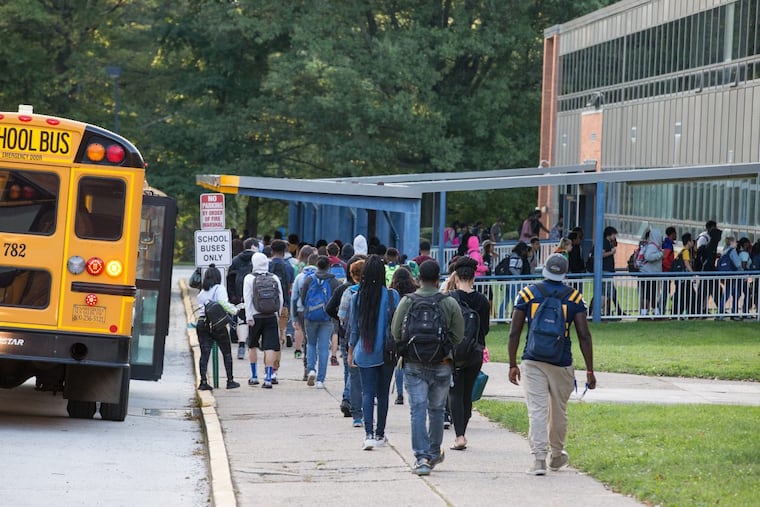Kids with autism being denied an education during the pandemic, Pa. lawsuit says
“It is...impossible for nonverbal and partially verbal children to receive the education they are legally entitled to through online learning,” said lawyer James J. Pepper. “And because of this, the defendants have left my clients and thousands of other children like them on the side of the road.”

Students with autism are illegally being denied an education during the government-ordered coronavirus school shutdown, a lawsuit filed this week alleges.
The outcome of the lawsuit, seeking class-action status and filed in federal court in Philadelphia on behalf of two Bucks County children, could potentially affect thousands of disabled students.
At its heart is a claim that Gov. Tom Wolf failed to name as “life-sustaining” services those that provide in-person education to nonverbal and partially verbal children with autism — kids for whom online instruction and services are ineffective.
Also named are Education Secretary Pedro Rivera and the Pennsylvania Department of Education, which collectively have broken state and federal law and deprived severely disabled children of their right to a free and appropriate public education, according to the suit.
The lawsuit comes as challenges mount against districts’ handling of special-education services during the pandemic. A class-action suit was filed in Hawaii last month. In New Jersey, some districts initially asked parents to waive legal rights before special-education students could receive remote special-education services, but a state Education Department order reversed that, saying the request was illegal.
Betsy DeVos, the federal education secretary, opted not to ask Congress for a waiver exempting schools from special-education laws during coronavirus closures.
» READ MORE: Coronavirus has upended education for all children. For those with disabilities, the challenges are greater.
Before the pandemic closed schools — Wolf ordered all Pennsylvania schools shut for in-person instruction on March 16, and extended the closure for the remainder of the school year on April 9 — James and Brennan, both 7-year-olds with autism attending school in the Central Bucks School District, spent 32½ hours a week receiving educational and therapeutic services. At school, they received one-on-one services from a range of teachers, aides, and service providers.
Each now receives just over an hour per week of online services. The children, both of whom use devices to communicate, are identified only by first names to preserve their privacy.
Both boys are regressing, with their education at a standstill, said James J. Pepper, the lawyer representing the families.
“As things stand now, online learning is the only option for school districts, and it’s not cutting it for these kids,” Pepper said. “They are not receiving an education, and the state is responsible."
Some private providers of educational services for children with autism are deemed life-sustaining and are providing one-on-one services during the pandemic, according to the suit.
The families do not fault Central Bucks, whose teachers and therapists the suit lauds as having made “heroic efforts” to help both boys through online learning. But their disabilities mean that even such efforts cannot give the boys the education they are guaranteed by state and federal law.
That the Wolf administration says two tobacco manufacturers, a hair-restoration business, and a fireworks warehouse are life-sustaining businesses while educational and therapeutic services for children with severe disabilities are not is illogical — and illegal, according to the suit.
“The services and instruction children with autism receive at public schools in the commonwealth are inarguably ‘life-sustaining.' This is especially true if the construction of a casino, the manufacture of cabinets, the manufacture of chocolates … were all deemed as such by Governor Wolf."
The pandemic is affecting all Pennsylvania public school students’ education negatively, but most children are resilient and can recover lost ground easily, Pepper said, while the stakes are highest for children like Brennan and James.
“It is literally impossible for nonverbal and partially verbal children to receive the education they are legally entitled to through online learning,” said Pepper. “And because of this, the defendants have left my clients and thousands of other children like them on the side of the road.”
The suit seeks compensatory damages, as well as a change directing the classification of services for nonverbal and partially verbal children as life-sustaining.
A spokesperson for the state Education Department said officials had not received the suit yet and declined to comment on pending litigation.